Agriculture
Agricultural disinfectants are used to keep the pipes, tanks and water irrigation distribution systems disinfected in order to ensure healthy plants in hydroponics systems. They can be also used to disinfect empty cold rooms and greenhouses, by fogging or spraying, before setting the new batch of plants and vegetables, and as hard surface cleansers.
Freebac 35 is designed for use in agriculture and horticulture, for disinfection of water systems. A shock treatment with Freebac 35 will remove the biofilm that blocks water lines, and a further continuous dosing will provide clean water. The water will also flow better through the system at lower pressure. Freebac 35 can also be used more directly against plants after harvest. Testing in several countries shows longer shelf-life after harvest.
Applications:
- Shock treatment to remove biofilms in irrigation systems.
- Continuous dosage after shock treatment: water disinfection.
- Disinfection of empty greenhouses (fogging or spraying).
- Hard surface cleaning and disinfection.
- Oxygenation of compact soil.
- Equipment and machinery disinfection.
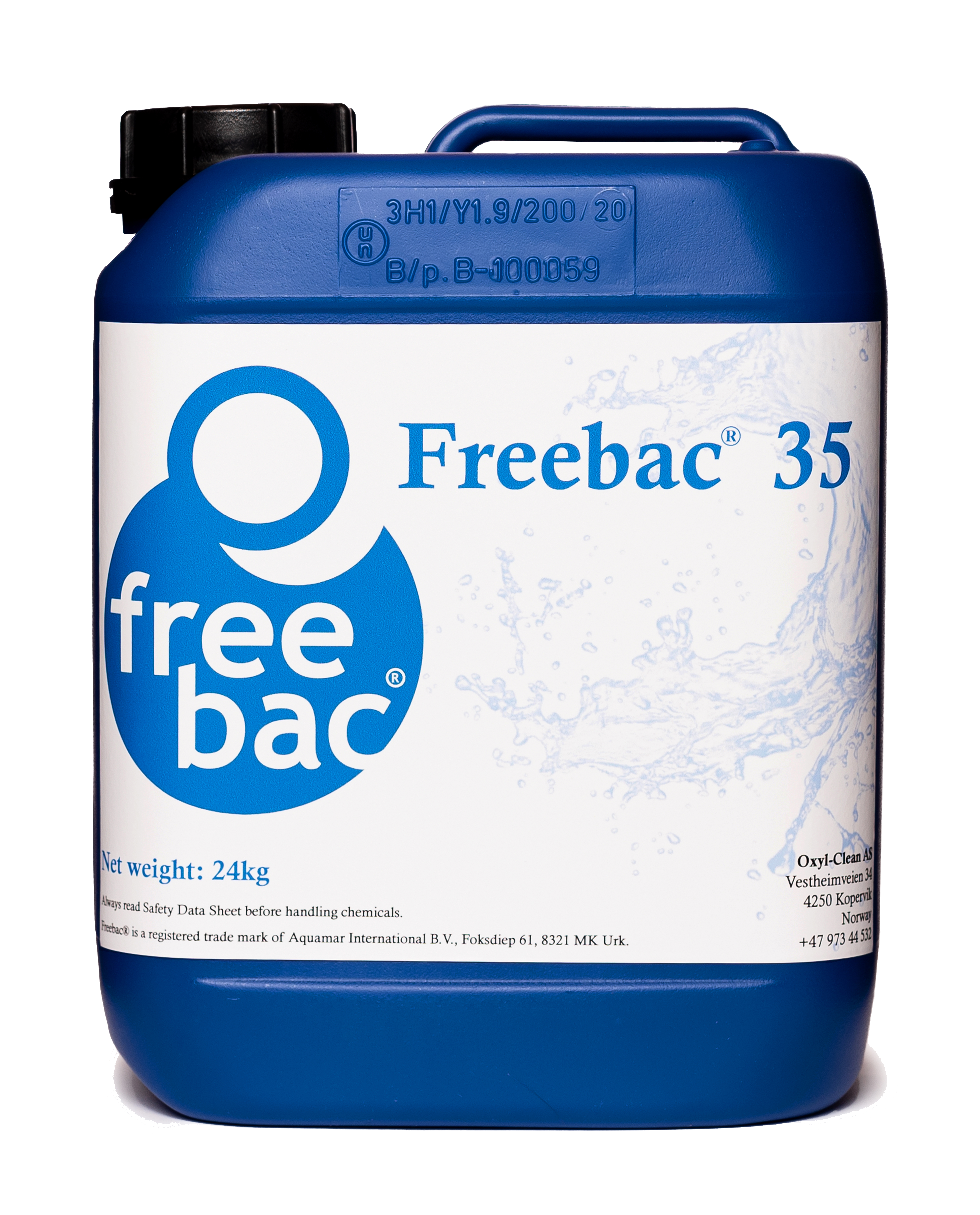
Advantages:
- Helps keep the number of pathogens low.
- Effective removal of biofilms.
- Removes bacteria, fungus, spores, and viruses.
- Is sustainable, degrades to water and oxygen.
- Not harmful to bees.
- Is made with food safe ingredients and will not leave smell, taste, or change the appearance when used correctly.
- Operates in temperatures: 0 – 90°C, and active at pH: 2-10.
Livestock
Cleaning and disinfection play a key role in the control of disease on farms. A shock treatment using Freebac 35 to effectively disinfect equipment, feeding and drinking systems, ceilings and walls, ledges, conduits and ventilation systems is highly recommended before adding a new batch of animals in the farm. After that, continuous dosing of the product into the system, to keep the drinking water lines to the animals disinfected. Water supply could be the first source of bacteria, virus, fungi and other pathogens that are harmful to the animals and in turn, to the humans eating the meat.
If the water supply tastes and smells bad, biofilm is probably clogging the pipes. This will lead to the animals to drink less, generally worse health outcomes and finally affecting the finances of the farm.
Applications:
- Shock treatment to remove biofilms in irrigation systems.
- Continuous dosage after shock treatment: drinking water disinfection.
- Animal-household, transport and equipment.
- Hard surface cleaning and disinfection – walls and other surfaces.
- Misting systems.
Advantages:
- Contains food grade ingredients. It will never affect the food safety when the product is used according to the instructions.
- It is sustainable and degrades naturally to oxygen and water.
- No change in taste, smell, or appearance of the water, which leads to a higher water intake in livestock.
- The animals will use their time to grow instead of wasting energy fighting infections that comes from polluted drinking water.
- Due to the formulation there will never be any kind of pathogenic resistance to the product.
- Operates in temperatures 0-90°C and pH range 2-10.
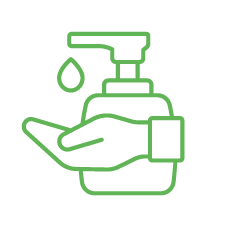 Multi-purpose
Multi-purpose Agriculture & livestock
Agriculture & livestock Restaurant & hotel services
Restaurant & hotel services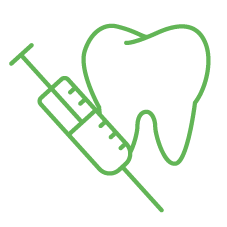 Medical, dental & veterinary sectors
Medical, dental & veterinary sectors Schools, sports & other buildings
Schools, sports & other buildings Aquaculture & fish industry
Aquaculture & fish industry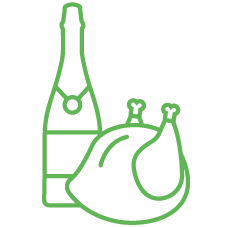 Food & drinks processing industry
Food & drinks processing industry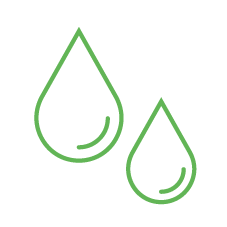 Water Treatment
Water Treatment